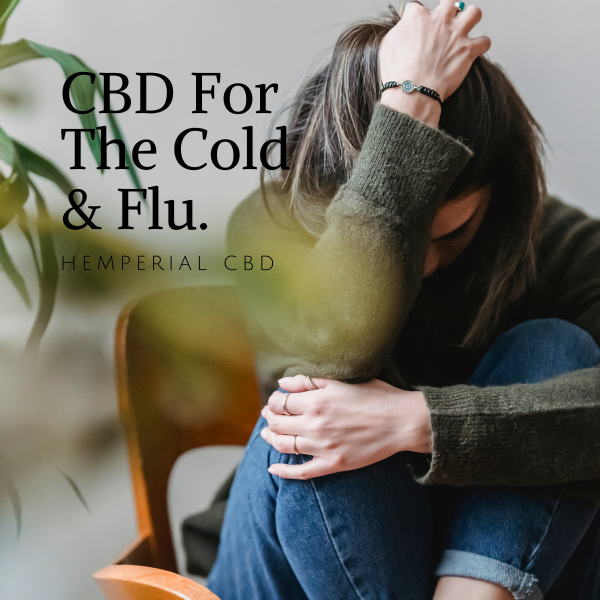CBD for Anxiety and Depression: Anxiety and depression are two of the most prevalent mental health disorders worldwide, affecting millions of individuals and creating a significant burden on societies. These intricate conditions present numerous challenges in both understanding and treatment, with their impacts reverberating through various facets of life. In the quest for effective interventions, cannabidiol or CBD, a non-intoxicating compound derived from the cannabis plant, has recently drawn considerable attention. This in-depth guide aims to delve into the potential of CBD for Anxiety and Depression, supported by scientific studies, anecdotal evidence, and an understanding of these conditions.
Unraveling the Complexity of Anxiety and Depression
Anxiety and depression are not simple conditions. They are multi-faceted disorders characterized by a multitude of symptoms and can vary significantly between individuals. Constant feelings of sadness, worry, dread, low energy, trouble sleeping, and difficulty concentrating are common. These symptoms often intersect, creating a challenging situation that can be difficult to manage. The exploration for new and effective treatments is ongoing, and cannabinoids, like CBD, are one of the possibilities currently under scrutiny.
Understanding CBD and Its Role in Human Physiology
CBD, one of the many cannabinoids found in the cannabis plant, does not produce the intoxicating effects associated with THC, its more well-known counterpart. CBD interacts with the endocannabinoid system (ECS) in the human body, which consists of a network of receptors and chemicals that regulate many body functions and mental states, including mood, pain, sleep, and immune response. Researchers believe that CBD’s potential impact on anxiety and depression could be related to its interaction with the ECS, specifically the CB1 receptors in the brain.
The Potential of CBD in the Treatment of Anxiety

Recent studies have broadened the scope of CBD’s potential therapeutic uses to include anxiety disorders. Preliminary results from these studies are promising, with CBD appearing to reduce symptoms of generalized anxiety disorder, panic disorder, social anxiety disorder, and post-traumatic stress disorder. In these studies, subjects treated with CBD typically reported lower levels of anxiety compared to those given a placebo. However, while these results are promising, it’s crucial to note that we are still in the early stages of understanding how CBD works to alleviate anxiety. Further long-term studies are needed to determine the most effective dosages and to fully understand CBD’s mechanisms of action.
CBD’s Potential Role in the Treatment of Depression
In addition to its potential for treating anxiety, CBD has also shown promise as a treatment for depression. Some researchers suggest that CBD may interact with serotonin receptors in the brain. Serotonin, often referred to as the “feel-good hormone,” plays a critical role in mood regulation. Early studies indicate that CBD may boost serotonin levels and, in turn, mitigate depression symptoms. This mechanism is similar to how many current antidepressants work. However, it’s important to note that much of this research is in its early stages and has been conducted on animal models. Further research on human subjects is needed to validate these initial findings.
Implementing CBD in the Management of Anxiety and Depression
When considering using CBD for anxiety and depression, it’s important to understand how to use it properly. CBD is available in various forms, including oils, tinctures, capsules, and edibles, each with its absorption rate and duration of effect. These factors can influence how quickly CBD enters the bloodstream and how long its effects last. Additionally, the dosage of CBD can vary greatly depending on factors such as body weight, the severity of symptoms, and individual body chemistry. Starting with a low dose and gradually increasing it is typically the recommended approach when beginning to use CBD for anxiety and depression.
CBD Interaction with Other Treatments for Anxiety and Depression
CBD should not be seen as a replacement for traditional treatment methods for anxiety and depression, such as cognitive-behavioral therapy and prescription medications. Instead, it might be considered a supplementary or adjunctive treatment. As always, anyone considering adding CBD to their treatment regimen should consult with a healthcare provider to ensure it’s the best approach for them.
Conclusion
The exploration of CBD’s therapeutic potential for anxiety and depression is a rapidly developing field. Initial studies and anecdotal reports suggest that CBD might be an effective tool for managing these conditions, offering hope for many. However, more comprehensive research and clinical trials are needed to validate these findings fully. As we await further insights, it’s essential for anyone considering using CBD for anxiety and depression to do so under the guidance of a healthcare provider. The future of CBD as a potential treatment for these conditions is indeed promising, and the upcoming years will surely bring more revelations on this front.
